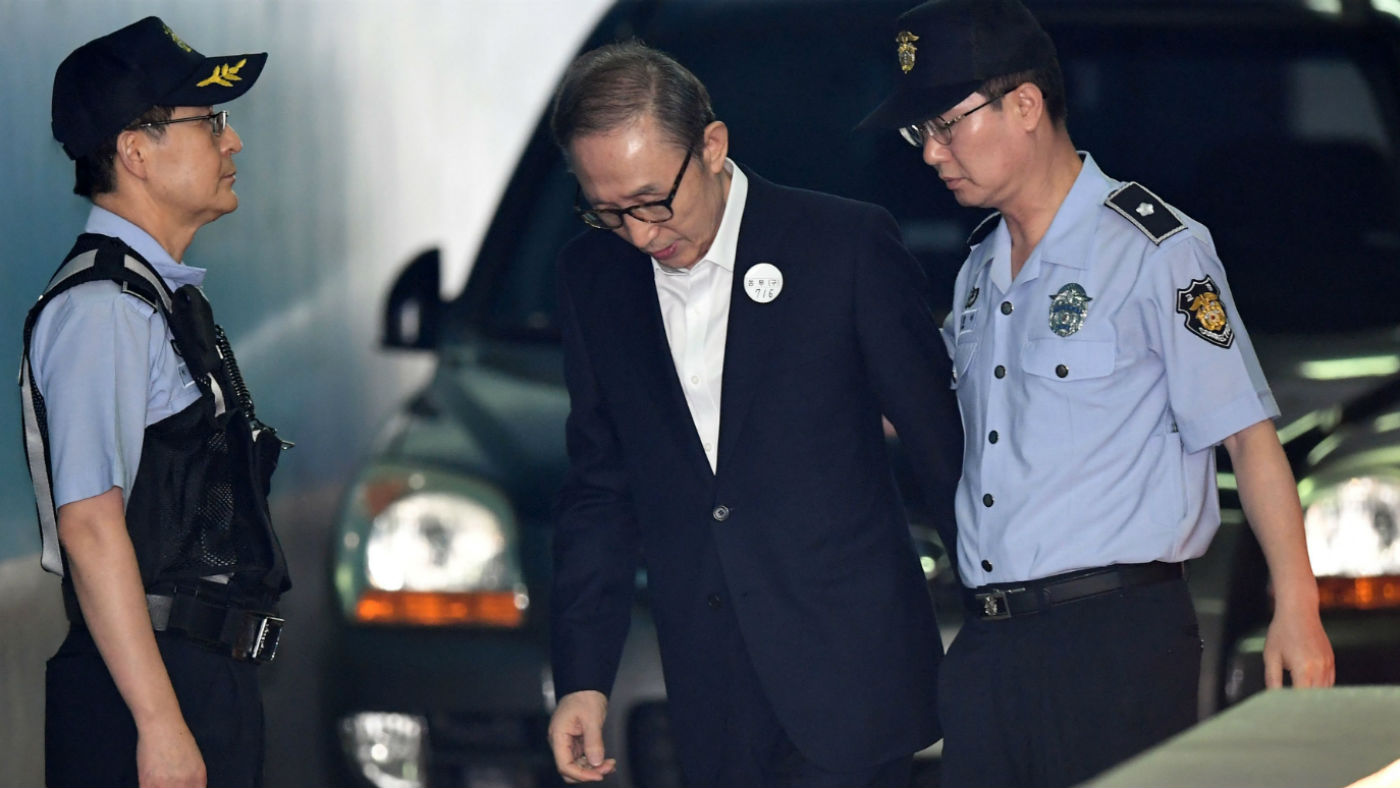South Korea: ex-president Lee Myung-bak jailed for graft
Lee to join his successor Park Geun-hye behind bars

A free daily email with the biggest news stories of the day – and the best features from TheWeek.com
You are now subscribed
Your newsletter sign-up was successful
South Korea’s prison population is set to include two former presidents, after former leader Lee Myung-bak was convicted and sentenced today to 15 years in jail on a series of corruption charges.
Lee, who served as president between 2008 and 2013, was found guilty by a Seoul court of embezzling about 24.6bn won (£16.7m) from a company he secretly owned, and of accepting bribes. In addition to the jail time, the court fined Lee 13bn won (£8.8m).
The 76-year-old former leader is “the latest in a string of high-profile political and business leaders ensnared by graft charges”, says Channel News Asia. The current president, Moon Jae-in, has vowed to crack down on corruption.
The Week
Escape your echo chamber. Get the facts behind the news, plus analysis from multiple perspectives.

Sign up for The Week's Free Newsletters
From our morning news briefing to a weekly Good News Newsletter, get the best of The Week delivered directly to your inbox.
From our morning news briefing to a weekly Good News Newsletter, get the best of The Week delivered directly to your inbox.
Lee, who was not in court to hear the verdict, denies all wrongdoing and claims his prosecution is politically motivated. He has a week to appeal.
His conviction comes six months after his successor as president, Park Geun-hye, was sentenced to 24 years in prison on bribery and coercion charges. Park, who was ousted from the presidential Blue House in March last year, was sentenced to a further eight years over an additional two counts of corruption at a second trial this July.
She now occupies a cell at Seoul Detention Centre, where she spends her days “eating $1.30 [£1] meals, washing her own tray and sleeping on a foldable mattress on the floor”, according to The New York Times. Lee is facing a similar fate.
One of the first presidents elected in free elections following decades of dictators and military coups, Lee had enjoyed considerable status “as the country’s first leader with a business background” and was portrayed as a symbol of South Korea’s economic rise, says The Korea Times.
A free daily email with the biggest news stories of the day – and the best features from TheWeek.com
However, he is now set to become the country’s fourth former president to serve jail time on corruption charges. “Chun Doo-hwan, the president from 1980-88, and Roh Tae-woo, the president from 1988-1993, were convicted of bribery and sedition in 1996 but were pardoned a year later,” The Guardian reports.
The reputations of a number of other senior South Koran politicians have also been tainted in recent years. Former president Roh Moo-hyun committed suicide in 2009 amid a corruption investigation into his family. And his predecessor, Nobel Peace Prize winner Kim Dae-jung, “was forced to apologise at the close of his term after all three of his sons were arrested or embroiled in scandals”, says The Korean Times.